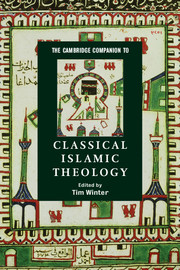3 - Islamic philosophy (falsafa)
from Part I: - Historical perspectives
Published online by Cambridge University Press: 28 June 2008
Summary
GENERATIVE INFLUENCES: AN OVERVIEW
The initial conditions leading to the formation of the discipline and study of philosophy in Islam were complex, but in general it can be said that this philosophical tradition was almost entirely based on Arabic translations of Greek texts. What is commonly designated as “Islamic philosophy” is marked by wide-ranging textual traditions in the genesis and development of a predominantly syncretic yet systematic philosophy in Islamic civilisation from Andalusia to India from the ninth century to the present. The majority of its texts are in Arabic, but a large number came to be written in Persian, a process which accelerated after the twelfth century.
Islamic philosophy grew out of the desire by learned members of the community to uphold the authority of Islamic revelation against arguments increasingly posed by members of the many divergent peoples who were living in lands united by the conquests of the seventh and eighth centuries. After the establishment of the Abbasid caliphate in Baghdad (750), subjects of various faiths contributed to an atmosphere of relatively free debate concerning the main constructs of religion, such as God, creation, causality, free will and divine authority. Increasingly, Muslims were forced to uphold the universalist ideology of Islam from a rational perspective and within civil institutions. Thus, although the majority of the practitioners of philosophy in the Islamic world were Muslims of differing cultural, social and linguistic backgrounds, their ranks also included many notable members of other religions.
- Type
- Chapter
- Information
- The Cambridge Companion to Classical Islamic Theology , pp. 55 - 76Publisher: Cambridge University PressPrint publication year: 2008
- 2
- Cited by



